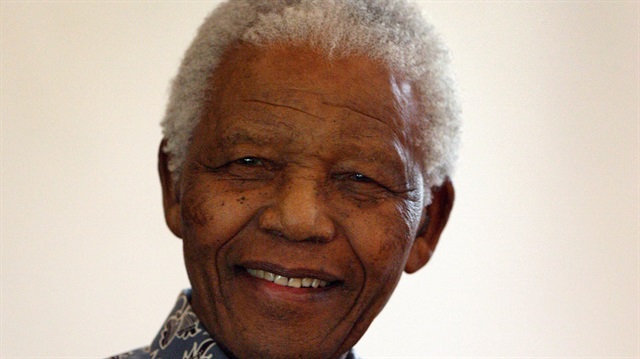
Nelson Mandela, a global icon and the first black president of South Africa, has been remembered on his 100th birth anniversary on Wednesday.
Mandela was born in the Mvezo village of East Cape province in South Africa on July 18, 1918. He later becomes the torchbearer of the fight against the apartheid regime.
Embracing forgiveness and love in the country instead of hatred against the apartheid regime is the very reason he is admired throughout the world.
Mandela was named as Rolihlahla Dalibhunga when he was born but his teacher gave him the name Nelson on the first day of his school.
Standing out against racial discrimination in the later stages of his education and boycotting the student representative council’s position on students’ demand made him expelled from school. This was the first price he had to pay for his cause.
The young Mandela graduated from law school and opened a law firm with Oliver Tambo as the first black lawyer in the country.
The legendary leader joined the African National Congress (ANC) for the first time at the age of 25 and founded its Youth Wing in coordination with close companions Walter Sisulu and Oliver Tambo, who defended the struggle for equality against the white supremacy.
Mandela began to take an active role in the party and advocated to transform ANC into a mass grassroots movement. This resulted in getting him arrested several times for his views, and was also banned by the government from taking part in political activities.
- Sharpeville massacre
Police killed 69 demonstrators in a rally organized by ANC after it was declared illegal by the apartheid regime in 1960.
After the killing, which is referred as "Sharpeville massacre" in history, the government continued to suppress the resistance movement and arrested thousands of people.
In 1964, Mandela gave up on passive resistance after the massacre and went abroad to collect weapons and monetary aid. He gets arrested upon his return and charged with provoking the public and attempting to overthrow the government, and was eventually sentenced to life imprisonment.
Before he was sentenced, Mandela made a historic speech in which he said: "During my lifetime I have dedicated myself to this struggle of the African people. I have fought against white domination, and I have fought against black domination. I have cherished the ideal of a democratic and free society in which all persons live together in harmony and with equal opportunities. It is an ideal which I hope to live for and to achieve. But if needed, it is an ideal for which I am prepared to die."
- Freedom after 27 years of prison
Mandela was sent to the maximum-security Robben Island prison. After spending 18 years there, he was transferred to the Pollsmoor Maximum Security Prison in Cape Town.
With the international campaign initiated by his friend Oliver Tambo, Mandela became the symbol of struggle against the apartheid regime. In the 1980s, the struggle against racism spread all over the world.
With increased external pressures and internal changes, Mandela was freed on Feb. 11, 1990. The ANC was also unbanned with restrictions on political groups lifted.
- Country's first black leader
In 1994, Mandela participated in the country's first democratic election to become South Africa's first black president.
Mandela served people from all walks of life. He started his mission of being a democratic leader to the Christian, Muslim, Jewish, and Hindu South Africans.
He made Frederik Willem de Klerk, the former president of the apartheid regime, deputy president in his government, in contrary to the public pressure seeking the complete transfer of power to black South Africans. Mandela kept a delicate balance between the two races and avoided the idea of revenge for the sustainable peace in the country.
In 1993, Mandela and Klerk were jointly awarded the Nobel Peace Prize for their work toward abolishing apartheid in South Africa.
Mandela was not re-elected when his five-year term expired and he handed over the power in 1999 to his companion Thabo Mbeki, who won the election.
Later on, devoting his life to social projects, Mandela fought AIDS, the sexually transmitted disease, which has killed many people including his son. He also worked for South Africa's progress in different fields with his Nelson Mandela Foundation.
Mandela's health deteriorated in 2011 and died on December 5, 2013 at home. He had 6 children from 3 marriages.
Various events and symposiums will be held all over the world to commemorate the 100th birthday of Mandela -- the symbol of freedom.
















